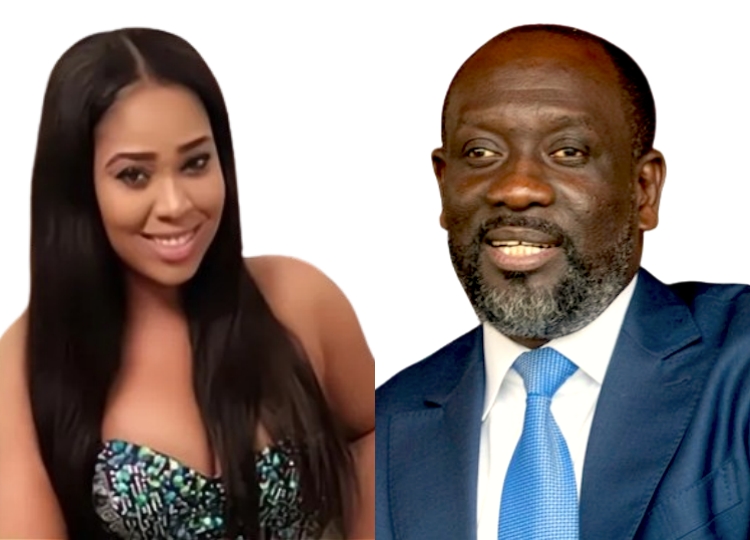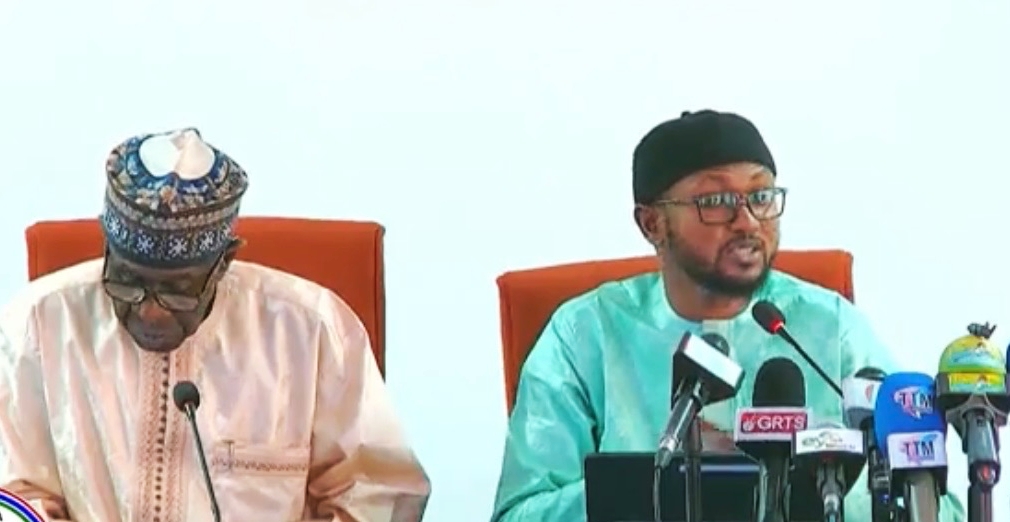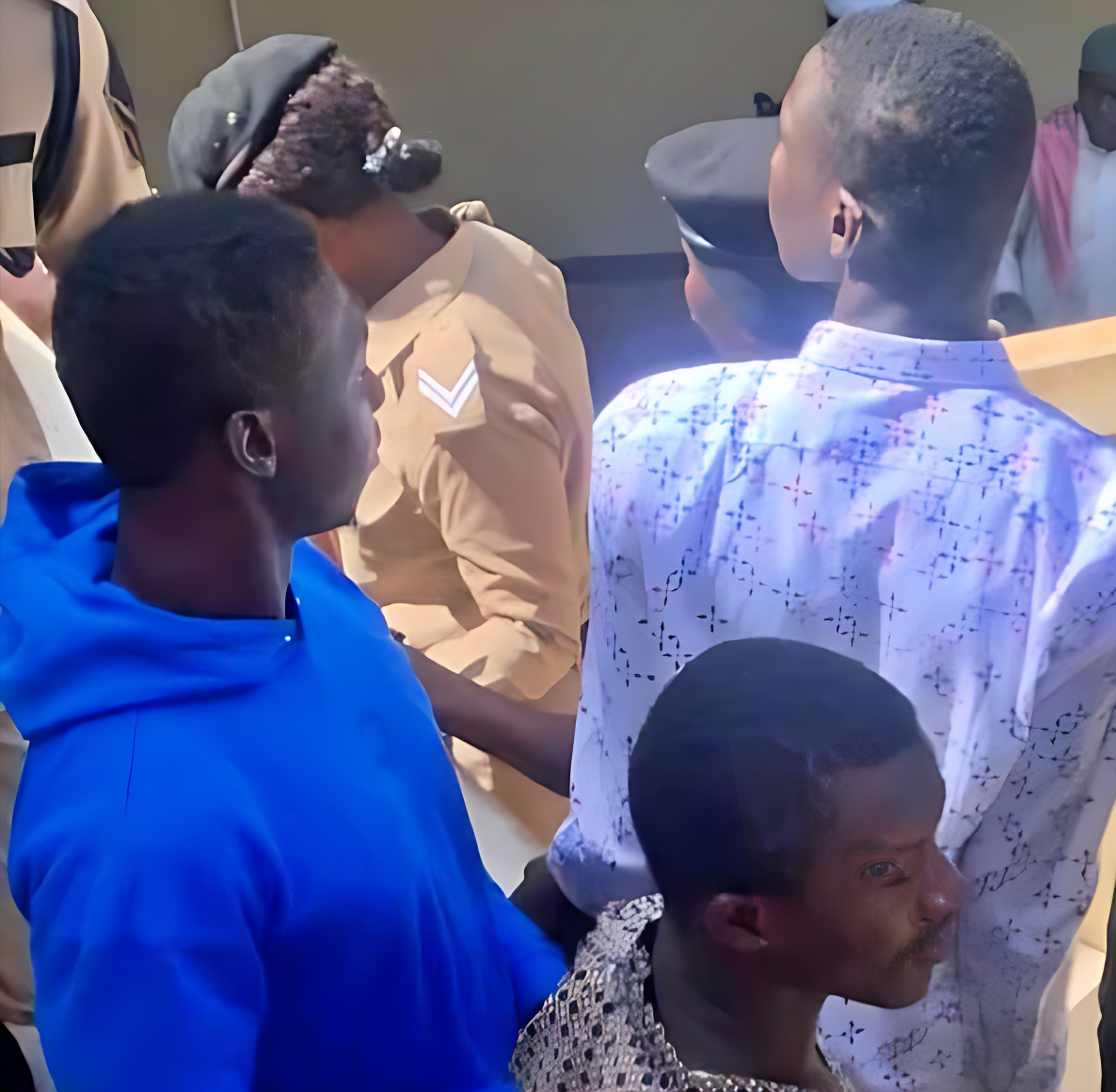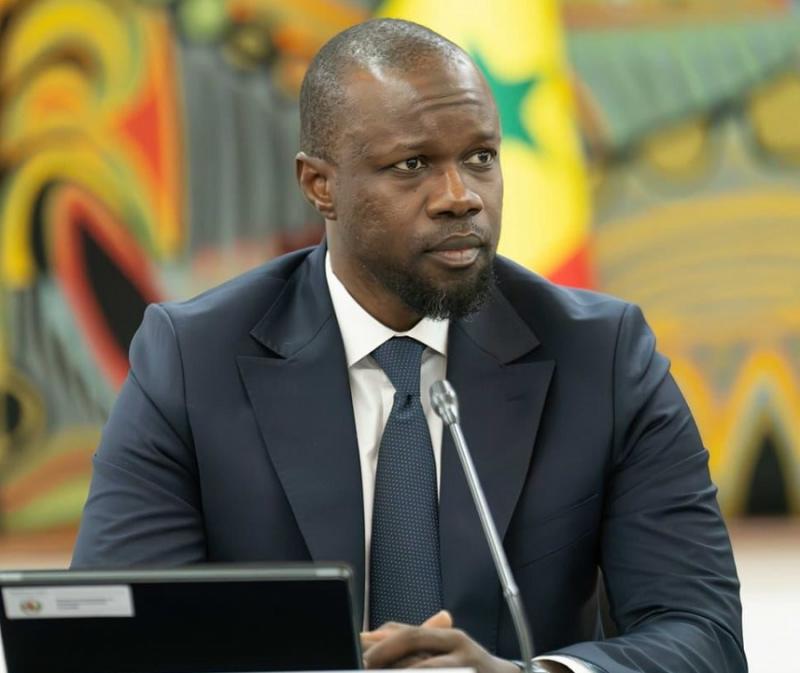Gambiaj.com – (DAKAR, Senegal) – In response to Prime Minister Ousmane Sonko’s refusal to appear before the national assembly, the assembly on Saturday refused to hold a budgetary orientation debate with the Minister of Finance representing the executive.
This marks a new episode in the ongoing standoff that has persisted for several days, centering on Prime Minister Ousmane Sonko’s refusal to present his general policy declaration before the Assembly. The opposition, holding the majority in the chamber, is now threatening a motion of censure.
The Parliament strongly criticized Prime Minister Ousmane Sonko for his controversial statement regarding the reading of his general policy declaration before the deputies. The assembly labeled Sonko’s comments as “outrageous” and claimed they threatened the functioning and balance of the country’s institutions.
On June 28, 2024, Prime Minister Sonko defended his decision not to read a policy declaration, citing the inadequacies of the parliament’s current Standing Orders. He stated that if the National Assembly does not provide standing orders by July 15, he will read the declaration before an assembly of Senegalese people, partners, and a jury, ensuring a free and open process.
Assembly’s Reaction
On Saturday, the National Assembly declared Sonko’s statements “extremely serious” and an “attack on the spirit as well as the letter of the Constitution of the Republic of Senegal.” The Parliament’s Executive met urgently to address the issue and, afterward, issued a press release condemning Sonko’s remarks. The release noted the “discourteous remarks, unacceptable injunctions, and shortcomings in form and substance,” stating these violated the operating rules of the institutions, the separation of powers, and republican elegance.
The assembly denounced Sonko’s remarks as a threat to the Republic’s institutions and values, postponing the Budget Orientation Debate until the Prime Minister declares his policy. They called on the National Assembly’s President to ensure the institutions function in accordance with the Constitution and laws, emphasizing respect for the institutions.
The Conflict: Standing Orders vs. Motion of Censure
While Sonko and his supporters argue that the current Standing Orders of the National Assembly are inadequate, many in Senegal believe the Prime Minister is politically maneuvering to avoid the risk of a general policy declaration’s upheavals before a parliament his government does not control.
The general policy declaration is a constitutional requirement, as stated in Article 55 of the Constitution, which mandates the Prime Minister to present his declaration before the National Assembly. This declaration is followed by a debate that may lead to a vote of confidence if requested by the Prime Minister.
A vote of confidence is a significant reciprocal action between the executive and legislative powers. It can lead to a motion of censure, a powerful political tool that can force the government’s resignation if the National Assembly disapproves of its policies. Given that Sonko’s coalition, Yewi Askanwi, does not have an absolute majority, the risk of a general policy declaration is high in the current polarized parliamentary environment.
Interestingly, in December 2023, deputies from Yewwi Askanwi, led by Sonko, tabled a motion of censure against the government of Amadou Ba, despite the same Standing Orders they now criticize.
Facts about the General Policy Declaration and Vote of Confidence
The General Policy Declaration (GPD) is a constitutional requirement (Article 55 of the Constitution) and a republican ritual in Senegal’s politics. It is a moment of intense exchange between the executive and legislature on public policy orientation and financing.
The Standing Orders organize the Prime Minister’s working conditions with the National Assembly but do not override the Constitution. Since 2000, five of the ten Prime Ministers who presented their general policy declarations have done so beyond the 90-day deadline.
Article 86 of the Constitution details the motion of censure, stating that the general policy declaration can lead to the government’s resignation if initiated by the Prime Minister or one-tenth of the National Assembly members.
Historically, motions of censure are more acts of political activism and have rarely been effective. The only successful motion occurred in 1962, in the context of an open disagreement between President Leopold Sedar Senghor and Prime Minister Mamadou Dia.
Potential Institutional Benefits for Sonko
It will be challenging for the National Assembly to amend its Standing Orders by October, when the next session opens. If he is unable to present his policy declaration, Sonko plans to address a popular assembly. This could lead to the dissolution of the National Assembly in September and the organization of legislative elections. The newly elected National Assembly would prioritize establishing new Standing Orders, after which the Prime Minister would deliver his GPD, followed by budget appropriations.
Reactions to the Legislative-Executive Standoff
Prominent figures have weighed in on the current standoff:
Ayib Daffé stated that the General Political Declaration, motion of censure, and question of confidence were removed from the National Assembly’s internal regulations.
Amadou Bâ, the former Prime Minister, emphasized the importance of respecting each stage of the democratic process to avoid institutional crises.
Adji Mergane Kanouté, BBY, questioned why Sonko, known for his courage, avoids facing the deputies.
Thierno Alassane Sall, Independent MP, criticized using internal regulations to evade constitutional provisions, stressing the need for respect for the Constitution and democratic governance.
Ahmed Khalifa Niasse, FAP Leader, argued that parliamentary customs should be respected and warned against the beginnings of a dictatorship.
Doudou Wade, former PDS Majority Leader, urged Sonko to enforce his project by presenting the general policy declaration and addressing the deputies.
These responses reflect a broad consensus on the necessity of adhering to constitutional protocols and underscore the seriousness of the current constitutional and political crisis in Senegal.










